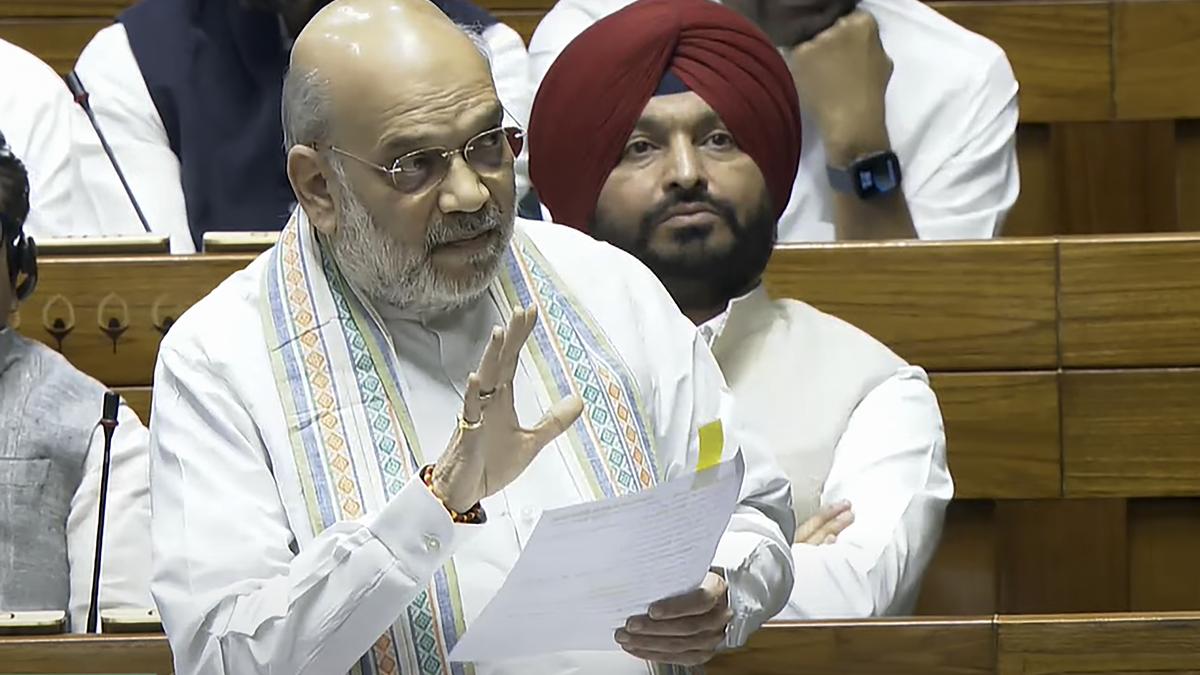Union Home Minister Amit Shah speaks in the Lok Sabha during a debate on the revised UMEED Bill on April 2, 2025.
| Photo Credit: PTI
Home Minister Amit Shah on Wednesday (April 2, 2025) categorically assured the Muslim community that the new Waqf (amendment) Bill does not interfere with its religious practices and accused the Opposition of “fear-mongering” for the sake of “vote bank politics”.

The Lok Sabha continued with a marathon debate of over nine hours on the revised version of the Bill, named the Unified Waqf Management Empowerment, Efficiency and Development (UMEED) Bill, which was introduced by Minority Affairs Minister Kiren Rijiju in the afternoon.
Making an intervention during the debate, Mr. Shah made it clear that a Mutawalli or the manager/administrator of a Waqf – a charitable endowment – and the Waqif (donor) can only be from the Muslim community.
“Non-Muslims have been included in a Waqf Board or Council for administrative purposes and that too to ensure that a Waqf donation is used for the purpose it is meant for,” the Home Minister added.

“There is an attempt to spread confusion that this law will interfere with their [Muslim] religious practices and the nature of donation. Such fear-mongering is being done to create a vote bank,” Mr. Shah said, adding, “Waqf or charitable endowment is religious, not the Waqf Board or Councils.”
The Home Minister said the word “donation” has special importance because donation can be only of one’s own property and none can donate government property.
Responding to Opposition arguments that Muslims would not accept the new law, he said, “This is Parliament’s law, it is binding on everyone and everyone has to accept it”.
Also read | Waqf Bill won’t benefit Muslims, says senior AIMPLB official
Taking on the Opposition, Mr. Shah claimed that they had resorted to similar fear-mongering during the passage of other laws such as the Citizenship (Amendment) Act (CAA), abrogation of special status for Jammu and Kashmir under Article 370, and the abolition of triple talaq. “Has even one Muslim lost his citizenship because of the CAA?” he asked.
Asserting that even Rashtriya Janata Dal patriarch Lalu Prasad wanted reform in the Waqf law, the Home Minister said the Modi government is fulfilling Mr. Prasad’s wish.
Stating that the Narendra Modi government believes in the “politics of performance,” the Home Minister said, “People blessed Modi ji with three terms as Prime Minister and the BJP will get another three more terms”.
Mr. Shah also said the Waqf law was made “extreme” in 2013 by the Congress-led United Progressive Alliance government for appeasement ahead of the 2014 Lok Sabha election and if the law was not tweaked then, there wouldn’t have been any need for the present Bill.

Setting the tone for the Treasury benches, Mr. Rijiju claimed that several properties, including the Central Government Offices (CGO) Complex and the Parliament building, were claimed by Delhi Waqf Board as Waqf properties through various litigations.
“The case was in court, but at that time, the UPA government denotified 123 properties and handed them over to the Waqf Board. If we had not introduced this amendment today, even the Parliament building we are sitting in could have been claimed as Waqf property. If PM Modi government had not come to power, several properties would have been denotified,” Mr. Rijiju said.
Published – April 02, 2025 10:28 pm IST
